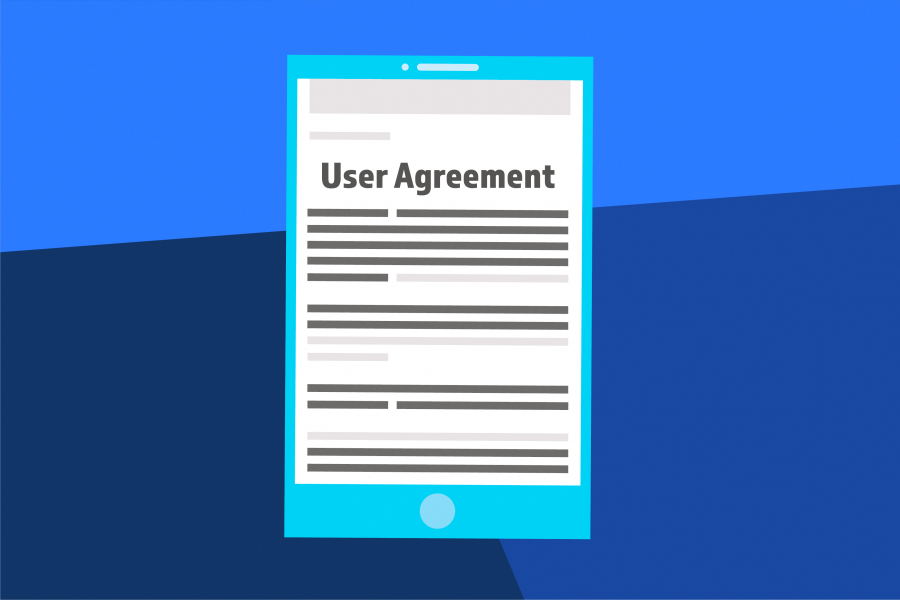
The deals we make with software
Recently, Apple came under fire for information that leaked about its handling of older phones. Apple blamed battery deterioration for its intentional slowing down of older models of hardware, citing old phones’ inability to keep up with increasingly demanding software updates. This modification of phones came about secretly and was only revealed to consumers after they began discussing the issue in online forums.
The ethics of software patenting and its relation to consumers is contingent upon intellectual property, economic prosperity and marketability. Consumers often face the risk of being culturally disconnected if they choose to opt out of using popular programs, said Martin Kenney, a professor of community and regional development at UC Davis.
Gerardo Con Diaz, an assistant professor in the UC Davis Department of Science and Technology Studies, is currently writing a book about the history of software patenting in America for Yale University Press, which is projected to be published in 2019. Proprietary software is software that a firm develops for its own use and over which it claims ownership, Con Diaz explained.
“Patents is one of the means of protection, and the Apple case is not about patents but about proprietary software and about what a firm can and can’t — should and shouldn’t — do with its own proprietary software,” Con Diaz said.
Patents are available to the public, while proprietary software does not need to be shared with consumers.
“Software patenting started getting pitched as an ethical debate not among end users but among companies in the ‘60s,” Con Diaz said. “And that was primarily because of the explosion of popularity around an IBM system called the IBM S/360. As smaller firms started to become interested in creating a market for their products in big mainframe computers, one of the things they did was pitch the patent protection of computer programs as a business ethics problem, not just a legal problem.”
This would allow small businesses to succeed in the cutthroat marketplace of computer engineering. These small companies were not fighting against intellectual property, but against the strongly connected nature of hardware and software. By posing the problem as an ethical debate, these small software companies were able to carve out a place in the market for their software without having to develop computers at the same time. Software was included with computers when it first became available to consumers in the 1970s. Apple and IBM, which were creating hardware at the time, developed software along with new computer models. This trend allowed for an eventual separation between computers and their programs which no longer had to be marketed concurrently. For example, Facebook does not have to license itself, but built a place in the market for its service and has the choice to exist outside of having a piece of hardware.
When it comes to buying software from a company, the lack of attention paid to user agreements when buying a product — the desire to own a product outweighing the concern of what kind of information they are handing over — is not a new feature, Con Diaz explained. Con Diaz said that the scope of the user agreement has expanded and plays a much more significant role than it did at the genesis of software development. The freedoms given to software companies also changed in a way that has allowed them to keep their software hidden from other companies and consumers alike.
“Most of the software that we use today is ‘blackboxed.’ We have absolutely no way of getting access to intellectual property,” said Ranjodh Singh Dhaliwal, a Ph.D. student of English whose research includes internet culture in association with the STS department at UC Davis.
A company’s ability to “blackbox” is like writing an essay in a language class or doing a science project and recording data. Writing demands sources along with the unspoken rules that make the paper well written, such as grammar and composition; doing a scientific study requires an idea and a result, along with the numbers and proof. So the unspoken rules when it comes to software are the secrets hidden from anyone outside of the company, the ones in the “blackbox” as Dhaliwal called it, and the sources are the user agreements.
“The idea of blackboxing software has the intention of protecting companies and their share of the market,” Dhaliwal said.
Both Dhaliwal and Con Diaz mentioned that France has rules making planned obsolescence — a marketing technique that forces consumers to buy newer products from the same company after a certain amount of time has passed or by drawing attention to newer products before older ones are broken or too old — illegal. The United States does not have such a law.
“Apple didn’t mention [their slowing down of phones] because they didn’t have to,” Con Diaz said.
It is becoming more difficult to live without services such as Google, Facebook, or Snapchat, Kenney explained.
User agreements explain the terms of using software clearly, but it may behoove users to be more familiar with what software companies are capable of outside of what they have to reveal to their users.
Written by: Jason Kelly — science@theaggie.org



